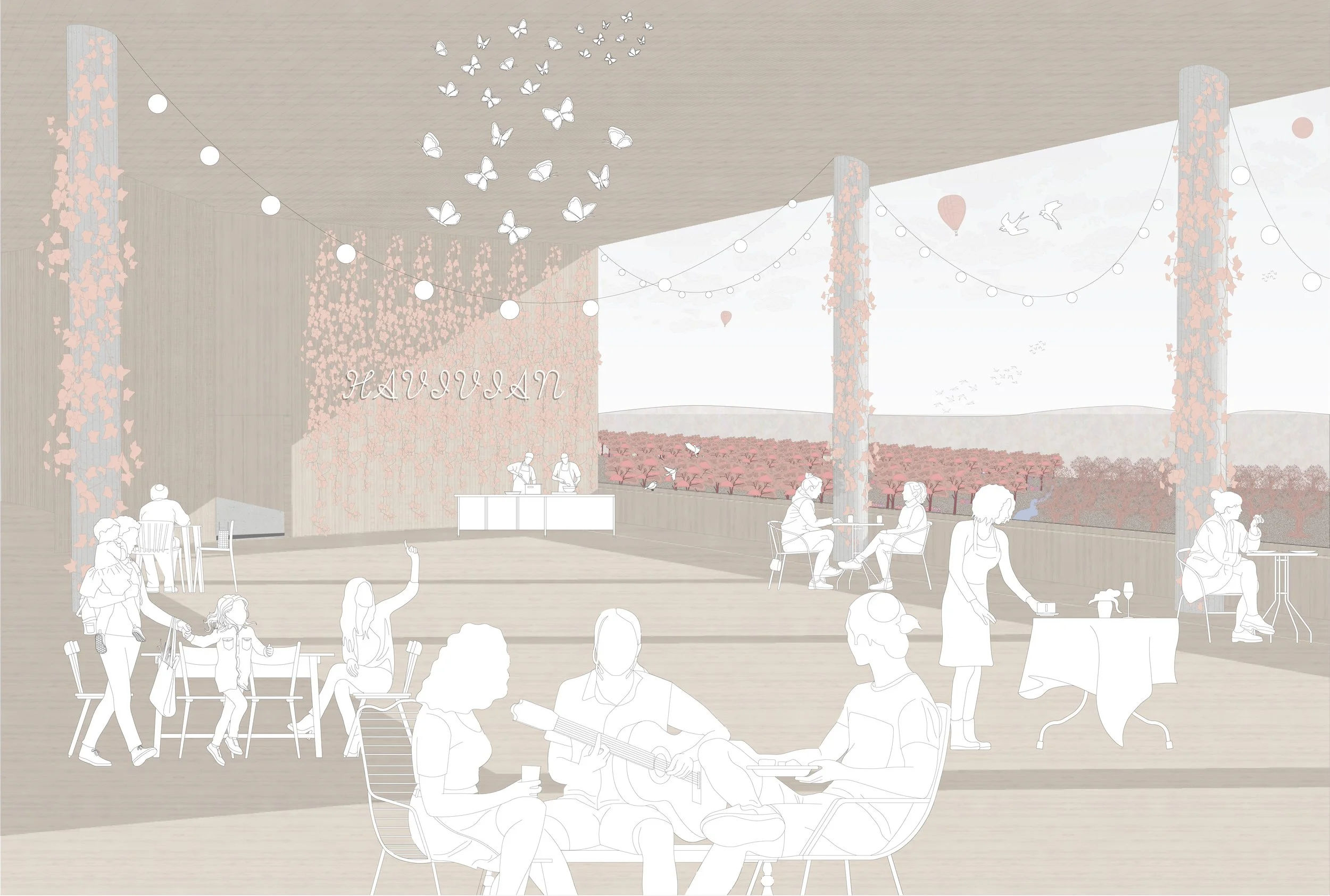The promised farm
Ecological and Biblically inspired typology
“He will bring us into this land, and give us a land which floweth with milk and Honey”
- Deutronomy 11:10
Located right above Beit Shemesh, this authentic and beautifully located farm not only grows a variation of foods and herbs. It cooks and prepares its own products for its restaurant on site for the weekend. It welcomes guests to see how they cultivate their products, and They deliver around the country. More importantly- they use a completely organic method of farming. Which is typically rare to see the farming industry today. After years being exposed to the ecological and health damage caused by the materials used in modern agriculture, Boaz Havivian an agronomist, decided that this time it would be different. Boaz harnessed the family members to revive the farm and grow organic vegetables using traditional methods.
“Agriculture in partnership with the community”- Boaz Havivian
After seeing the farm operates by sticking with organic methods of farming, the restaurant, market, and sense of community. It made me rethink our way of living. How far have we disconnected from nature? Why is there such a gap between man-made city life and nature? Why Is agriculture- something that was so present in our daily lives many years ago so out of the picture? As we know, we have never overworked the land since the last century. To the point where farming today has led us to issues such as insufficient agriculture land , soil erosion, extreme water consumption, inadequate transport. Moreover, what role does agriculture play in our lives as humans and as a society. This disconnection from nature by living in concrete jungles does take a toll on our well-being. This is not just an issue we are dealing with in Israel but internationally. In terms of health- the air we breathe, the processed foods we consume, the lack of physical activity and laboring with nature (to a certain extent), and the lack of sunlight exposure. Mental health has never drastically increased over the last century since our lives have been dominated by industrialization followed by technology. Leading to another main factor- we have also lost the sense of community. Indeed, we live in the same areas and even in the same buildings. Yet we have never been so isolated from communal reunions and socializing, just speaking in terms of human relationships. Isolated within concrete jungles (which is the case in Beit Shemesh) and detached from the natural surroundings we could experience on a daily basis. The other core theme of the project since it is in Israel (where Beit Shemesh has a highly religious demography). This fact had to be taken into consideration for this project’s purpose. It was not a question of design but of its meaning. What is the utopian ideal of Israeli living? Not necessarily religiously but symbolically? it is for that reason i stepped back into ancient Israel’s biblical idea of what this land was promised- a land flowing of milk and honey. Reintegrating this prophetic ideology of flourishing crops and its symbolic products for the proposed way of living and farming all at once. With that said, it was also important to consider what are these symbolic products within the Hebrew bible. Milk, honey and the seven species mentioned in the bible. Combining both Israel’s biblical historical religious symbolism of agriculture with a new design proposal of living through architecture, community, well-being, sustainability, and agriculture/ farming.








